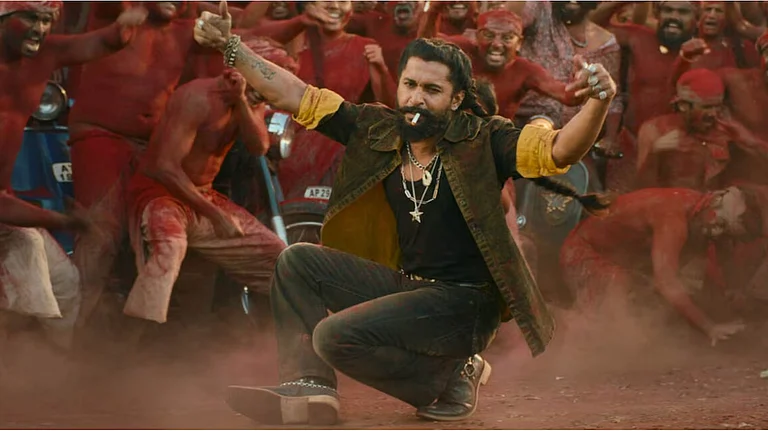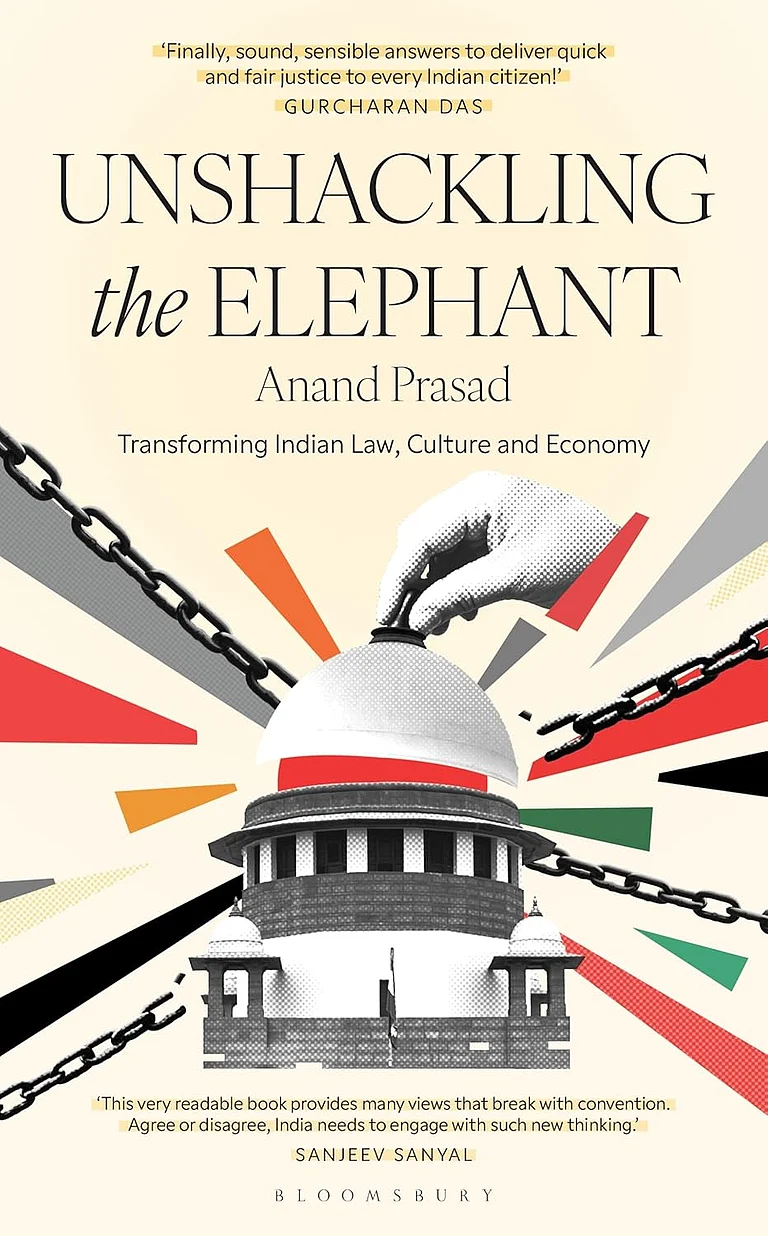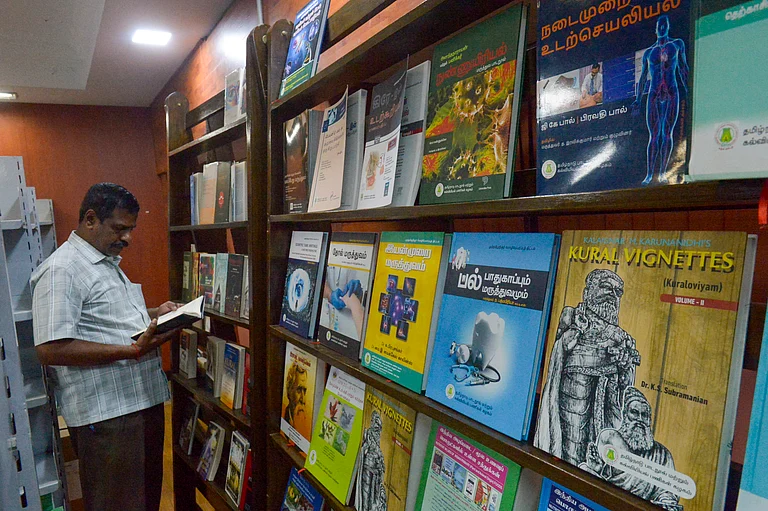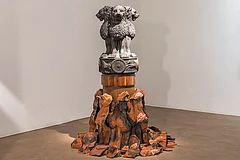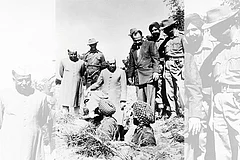In my 44 years of publishing experience in Telugu, I have seen continuous devaluation of Telugu when compared to English—from a section of readers (snob value of English), from English language publishers ( high royalty payments in spite of being aware of the cost of translation into Telugu, which doesn’t receive grants as English language books do), from managers of literary events, and from the English language media. Some of the best-loved writers whom Indians read and have grown up with, have written in Indian languages. Despite this, why is writing and publishing in Indian languages so devalued today?
While the number of Indians writing in English has gone up astronomically, contemporary Indian language writers like B Jeyamohan, Hareesh, Perumal Murugan, Indira Goswami, Charu Nivedita, N S Madhavan, K R Meera, Benyamin, Daya Pawar, Manoranjan Byapari, and Imayam, among others, have a huge fan following. However, this is not reflected in the Books sections of newspapers and magazines, and at literary festivals.
Translations into English have been at the mercy of multinational publishing houses. Let us call them what they are—when we don’t hesitate to call Nestle or Coca Cola multinationals, why not call Penguin or HarperCollins the same? Aren’t Oxford University Press and Cambridge colonial presses? All of them are based on capital coming in from the West in search of newer markets and greater profits, trawling the hitherto sacred world of Indian language literature. Their shareholders control them.
Publishing in India has become an international business. When Perumal Murugan’s book was unofficially banned in 2015, English language publishers clamoured to have him translated while Jeyamohan’s Aram (2011) and other fine Tamil literature had to wait for a decade to be introduced to pan-Indian readers. Air-conditioned editors’ offices and boardrooms of corporate publishing houses in Delhi do not offer the best view of Indian language literature. Editors and agents who work with them are constantly shifting from one house to another, thus escaping responsibility for any sustained action. These musical chairs involve salaries and perks, and have nothing to do with the state of Indian literature.
Translations from Telugu to English are a labour of love (or snob value?) and translators do not ask for payment, whereas translations in the reverse have to be paid for.
There are about 200 prestigious awards/residencies for books by Indian authors published abroad compared to one for those published in India, particularly in Indian languages. If Geetanjali Shree’s Tomb of Sand were not published in England and gone on to win the Booker, I wonder if we would have heard about it at all. Nobody will ensure a fair balance of awards and residencies unless we demand it.
Books by Dr Ambedkar and Jyotiba Phule were kept alive by the little presses—the Nagpur publishers, Gautam Book Centre in Delhi, and the Maharashtra government volumes organised by the Dalits. We began publishing Ambedkar from the inception of Hyderabad Book Trust (HBT). Those who profited by publishing in India never thought of publishing his works or those of Dalits till the turn of the century when he became necessary reading. They only jump on the bandwagon when they see profits.
Translations from Telugu to English are a labour of love (or snob value?) and translators do not ask for payment, whereas translations in the reverse have to be paid for. Sometimes, major publishing houses do not hold the copyright but still demand royalty. When we have translated books from Telugu to English for the English language press, we have not been paid for the editing, copy-editing, and proof-reading work that we do. With the publication of my own book (Land, Guns, Caste, Woman: The Memoir of a Lapsed Revolutionary) in English, I began to get invitations to events and my voice is now heard. Work in Indian languages is not recognised, work in English is.
The distribution network is also dominated by the multinationals. Distribution charges are up to 65%. If you buy a book priced at Rs 300 that is distributed by either Penguin or HarperCollins, nearly Rs 200 goes to these giants. The publisher is left with Rs 100 to distribute among the author, translator, editors, and printer charges, and of course, royalty to the multinational publisher. To the victor the spoils! Editors in these companies are asked to edit manuscripts of their Western branches (it is cheaper here), and this has hiked the editing fee from 75 paise to Rs 1 per word. An editor of a one lakh-word manuscript priced at say, Rs 300, rakes in Rs 1 lakh immediately, while the writer/translator gets 4-7% royalty on the net price after a considerable period. (The net price being Rs 100 after the distribution networks take their cut. Of this, the writer could get Rs 7 per copy and the translator even less). Foreign demand is beating us down.
Yes, fantastic advances are being paid to some writers; top-notch translators like Arunava Sinha and Kalyan Raman are not paid less than a lakh for translating one book. The corporates need prize-winners to represent at litfests and so they pay well for some books, but their bread and butter comes from text-books, self-help books, paid biographies (including buy backs of wives of IT honchos), and rehash of mythologies. Amazon Westland shut shop when they found that paying huge advances didn’t work.
Promotion is an important part of publishing. Litfests matter, but what percentage of money goes into the Indian language industry as compared to the English language industry dominated by the multinationals? The money spent on the Jaipur Literary Festival alone would have funded 20,000 literary festivals in 2 and 3-tier cities across India—and what a literary renaissance that would have created!
The distribution of resources has to be equitable. Colonialism and multinational business in publishing have to be recognised and acknowledged, their sins discussed.
To be fair, we need to see where Indian languages stand today. My own language, Telugu, is dying. Its script is disappearing, and readership in Telugu has declined. Dominant caste people sent their children to English-medium schools in the seventies and eighties and Dalits followed suit in this millennium. The first-generation Dalit readers who came up in the eighties and led to a new flowering of Telugu literature have been succeeded by the Dalit generations that prefer to read English. The two Telugu states of Telangana and Andhra Pradesh have English as the medium of instruction in government schools. With a dire lack of trained teachers, an entire generation grows up knowing neither English nor Telugu.
Former chief minister Chandrababu Naidu declared two decades ago that the humanities and languages were not necessary—what was important was computer engineering and medicine. He starved the existing humanities departments of funds and these virtually shut down. Not that the IT industry cared for India’s literature in India. Naidu was catering to the likes of Narayana Murthy who donated over $ 5.2 million to Harvard to fund the Murty Classical Library of India, and the Salt Project (South Asian Literature in Translation),that has also been funded by an IT NRI. Brown to white—and maybe, some of it back to brown—the eternal colonial pattern.
When HBT began publishing in January 1980, our print order was around 3,000-5,000. We now publish 500 copies in the first edition. The Covid disaster accelerated what began over a decade ago because our print order was down to 1,000 even before Covid hit. Many authors are now paying publishers to get their works published. Telugu readers are still there in villages and small towns, but publishers and writers are unable to reach them as before because of the high travel costs. Telugu publishers jostle for available space among the few readers in cities and big towns.
The lack of returns has dramatically affected standards of translation and management. Current publishing incomes do not sustain fresh talent. What keeps the language alive today is films, though Telugu films are largely potboilers. People can speak Telugu but can barely read it. The two Telugu states are home to some of the richest Indians–contractors, pharma giants, real-estate honchos and ex-royals who have invested well. Forbes lists five Telugu people among the 100 richest Indians. Their wealth, not unsurprisingly, has not trickled down.
Readership has not dropped to no return. In my time, barely two people in a class of 50 read books outside the syllabus. The ratio would be the same now. With an abysmal literacy rate of less than 30% in 1960, we now have every 76 persons in India who are able to read. Books will always hold their own. Last year, the Karnataka government gave 25 lakh rupees to the Savur Festival, schools and colleges were closed for four days to facilitate visitors’ stay, and food was free. Over 12 lakh people visited the festival. (Footfall at the 15-day Kolkata Book Fair is about 28 lakh; four lakh at the JLF). Tamil Nadu’s Translation Board has taken up the gigantic exercise of funding the translation of Tamil texts into English and now, multinationals and colonial presses are flocking to the state government!
My contention is that the distribution of resources has to be equitable. Colonialism and multinational business in publishing have to be recognised and acknowledged, their sins of omission and commission discussed openly. They are not making soaps and chocolates. Their work is in the realm of ideas and contestation—a sacred space. We belong. Responsibility comes with belonging. There is no escape.
(Views expressed are personal)
MORE FROM THIS ISSUE
Gita Ramaswamy is best known for her work with hyderabad book trust that has published over four hundred and fifty telugu titles







